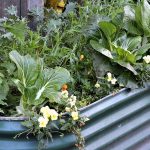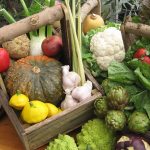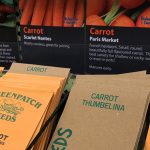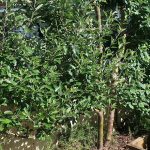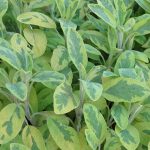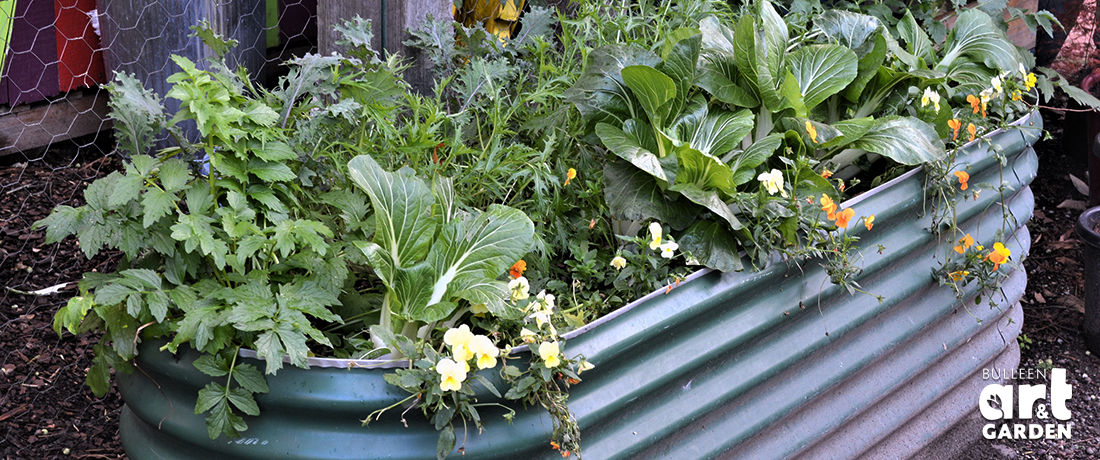
We do not all have access to large sunny gardens or even any garden at all. If you would like to grow food at home but feel like you don’t have the room, help is at hand.
If you have a small garden, or even just a balcony, there are many ways to grow food, using raised beds, pots, window boxes and hanging baskets. Easy to grow crops such as salad leaves, strawberries, Asian greens and herbs will grow happily in pots, and if you have room for a raised garden bed, then you can grow an even larger variety of vegetables.
Herbs and fast growing vegetables require a pot about 20cm deep, whilst larger vegetables such as tomatoes do better in a pot 30cm deep. A dwarf fruit or citrus tree needs a pot at least 50cm deep and should be repotted every two to four years (as even the best potting mix will break down over time).
The advantage of pots in a small garden is that they can be moved to follow the sun. However pre-fabricated raised beds come in all sizes to fit even the smallest garden, and are an excellent option if you have an open sunny area.
The key to maximizing space in a small garden is design. Observe the pattern of sun and shade in your garden and place your raised bed or containers in the sunniest spot. Four to five hours of direct sun is ideal, but if your garden is very small you may not have this much sun year round. Over winter, if your garden becomes shady, stick to fast growing leafy greens, such as rocket, coriander or silver beet, which will tolerate the shade. Also – don’t forget you can use the front garden also. Frequently it is the front garden that gets the best light and is ideal for growing vegies. A significant side benefit is the conversations you have with passers-bye.
Always include vertical space when planning, using walls, trellises and stakes to provide support for vegetables such as pumpkins, cucumbers, peas, beans and tomatoes. Consider growing productive climbers such as passionfruit and kiwi fruit on fences rather than a purely ornamental climber.
It is important to prioritise when deciding what types of food you would like to grow. Make a list of what you like to eat and plant accordingly, as well as growing only what is in season. Vegetables that do not store well, such as spinach and lettuce, are good to grow, as well as highly productive plants such as tomatoes, beans and peas, as you will get a high yield over a long period of time.
Hanging baskets are a great use of space, as well as being highly ornamental. Herbs such as oregano, curly parsley and thyme will spill happily over the sides of hanging baskets. Strawberries thrive in hanging baskets, look great and are kept away from snails and slugs.
Growing bags for tomatoes can be attached to walls or hung from a hook, and potatoes can be grown in plastic rubbish bins or specially designed bags. If you have paving or brick areas only, growing bags and pots can be placed directly onto these areas and easily moved if required.
Seeds can be sprouted on sunny window sills and grown on in containers before taking up precious room in the garden. Plant stacking is a great space saving technique, and it simply means growing a combination of plants closely together. Tall plants such as tomatoes can be under-planted with spring onions and lettuce, each occupying a different space and harvested at different times. Established corn can provide support for beans, whilst a pumpkin will grow as living mulch beneath them.
Window boxes can be attached to window sills and planted out with herbs and salad greens, for easy to reach pick and use produce.
If you would like to grow fruit trees in a small garden there are many options available. Espaliered fruit trees can be planted flat against the fence, creating a beautiful and productive screen in the process. An ever increasing range of dwarf fruit and citrus trees can be grown in large pots or half wine barrels. Multi-graft fruit trees will provide two or more types of fruit on one tree, or single fruiting trees can be planted in the same hole as a ‘duo’.
But all I have is a balcony!
If you have a sunny balcony then you can grow a range of herbs and vegetables in containers. Depending on the size of the balcony and the amount of sun it receives you could grow any thing from a few lettuces to a lemon tree.
The main things to consider are drainage, sun and protection from wind. A minimum of three to four hours of sun is needed for fast, healthy growth. Herbs and fast growing vegetables require a pot about 20cm deep, whilst larger vegetables such as tomatoes do better in a pot 30cm deep. A dwarf fruit or citrus tree needs a pot at least 50cm deep and should be repotted every two to four years.
Your space is limited and a great way to save room is to use tiered plant stands or step ladders. Place taller plants at the back, so all pots receive plenty of sun. If water run-off is an issue, place saucers under raised pots or use containers with a water reservoir, such as a ‘self-watering’ pot. Don’t forget the beauty of hanging baskets, with fresh herbs, strawberries and colourful scented geraniums cascading down.
Place pots out of the way of strong winds to avoid damage and drying out. Screening plants such as potted bamboo do well on balconies to provide privacy and wind protection.
Grow only those herbs and vegetables you will use often. Instead of growing cabbages, plant fast growing herbs such as coriander, Vietnamese mint, and oregano, as well as leafy greens such as lettuce, bok choi and rocket. These easy to grow produce plants are better fresh and can be used immediately in the kitchen.
And don’t forget the kitchen sink! Fresh sprouts are one of the easiest and fastest ways of growing food inside. Alfalfa, mustard, snow peas and mung beans are available as seed specifically for sprouting. Simply place a tablespoon of seeds in a jar, secure a fine cloth over the opening with a rubber band, cover with warm water and soak overnight. The next day drain off water, rinse thoroughly and leave next to the sink. Rinse and drain at least twice a day and within a few days you will have fresh sprouts to add to sandwiches and salads. Store in the fridge for up to five days while the next lot of seeds are growing. Sprouts can also be grown on damp paper towel and snipped with scissors for harvest when about 2.5 – 5cm long.
For all gardeners with limited space the key points to consider are:
- Use containers including hanging baskets and growing bags.
- Design first and include vertical space when planning.
- Grow only what you will use.
- Propagate plants elsewhere before taking up space in the garden.
- Grow dwarf fruit and citrus trees. Do duo planting.
Growing food in a rented garden
There are many factors that you may need to consider if you are renting. The possibility of moving again, restrictions on developing garden beds and keeping the garden low cost are all contributing factors for renters.
Raised garden beds are a great option if you have the room. Pre-fabricated raised beds may be placed on lawn or hard surfaces and taken with you if you leave. Half wine barrels can also be used as raised garden beds, and are great for growing salad leaves, Asian greens and herbs. Dwarf fruit and citrus trees are easily grown in large pots and wine barrels. Handy hint: When you are moving – move your pots and planters first, otherwise they can be left behind in the exhaustion of moving…
If you don’t want to spend too much money on your rented garden then there are many ways to cut costs. Cuttings of perennial herbs and shrubs can be taken from friends and family. Herbs such as rosemary, lavender, sage, thyme and oregano can all be successfully propagated from cuttings. Buy seed instead of seedlings and you will get hundreds of seeds for the price of a punnet of seedlings. Seed can then be saved from your garden for many years and taken with you when you leave. Easy to save vegetable seeds include tomatoes, beans, broad beans, peas, spring onions and pumpkins.
When shopping at the nursery buy smaller plants; they are cheaper and establish better, and a great range is available. Look out for the specials. Nurseries often have discount sections, selling plants at greatly reduced prices.
Polystyrene boxes can be used to grow vegetables and are free from fruit shops. Old plastic pots can be washed and used again and any reasonably sized container with drainage holes can be used to grow plants in.
The key things to remember if you are renting are:
- Grow vegetables, herbs and dwarf fruit trees in containers.
- Pre-fabricated raised beds can be taken with you when you go.
- Buy seeds, seedlings and discounted plants to save money.
- Use polystyrene boxes, old pots and containers.

